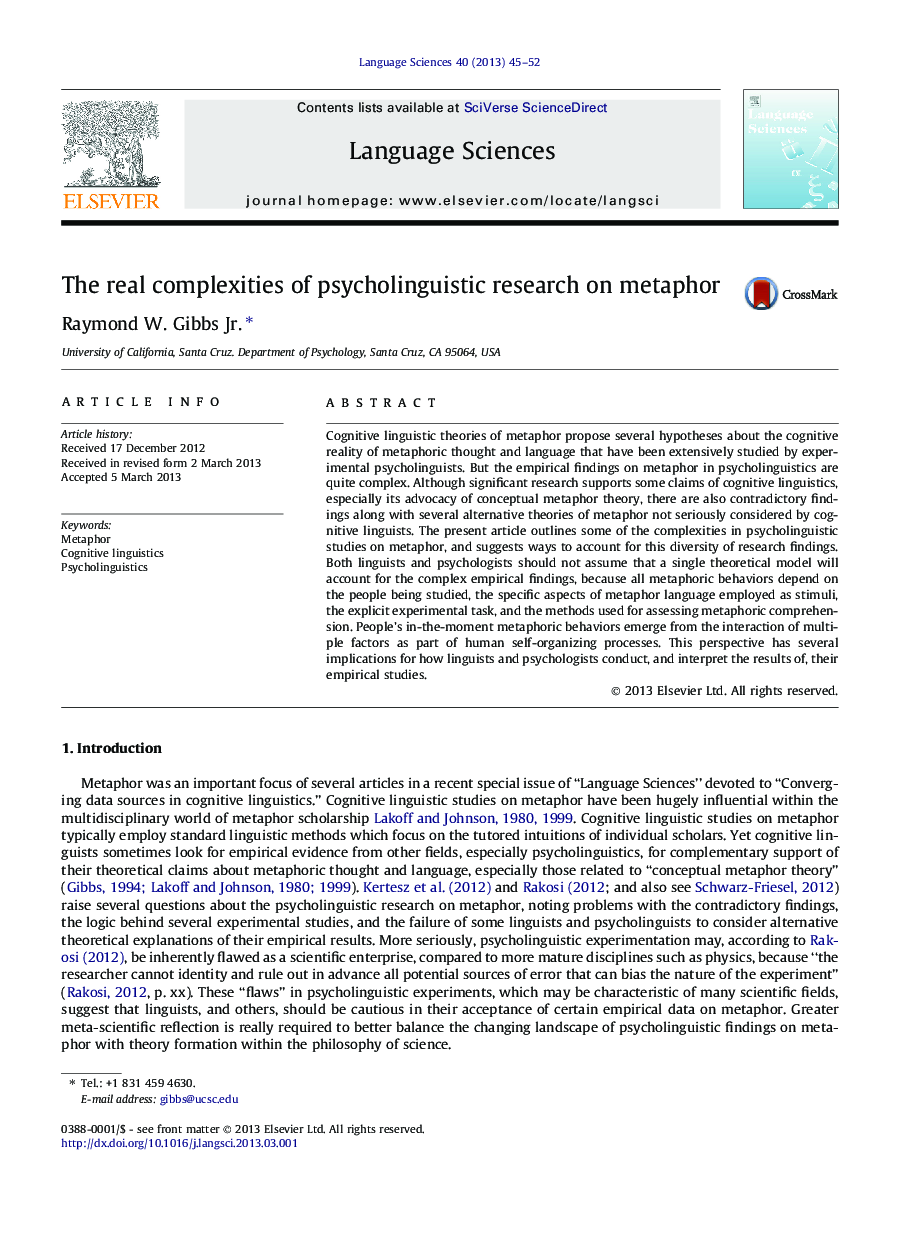| Article ID | Journal | Published Year | Pages | File Type |
|---|---|---|---|---|
| 7533930 | Language Sciences | 2013 | 8 Pages |
Abstract
Cognitive linguistic theories of metaphor propose several hypotheses about the cognitive reality of metaphoric thought and language that have been extensively studied by experimental psycholinguists. But the empirical findings on metaphor in psycholinguistics are quite complex. Although significant research supports some claims of cognitive linguistics, especially its advocacy of conceptual metaphor theory, there are also contradictory findings along with several alternative theories of metaphor not seriously considered by cognitive linguists. The present article outlines some of the complexities in psycholinguistic studies on metaphor, and suggests ways to account for this diversity of research findings. Both linguists and psychologists should not assume that a single theoretical model will account for the complex empirical findings, because all metaphoric behaviors depend on the people being studied, the specific aspects of metaphor language employed as stimuli, the explicit experimental task, and the methods used for assessing metaphoric comprehension. People's in-the-moment metaphoric behaviors emerge from the interaction of multiple factors as part of human self-organizing processes. This perspective has several implications for how linguists and psychologists conduct, and interpret the results of, their empirical studies.
Related Topics
Social Sciences and Humanities
Arts and Humanities
Language and Linguistics
Authors
Raymond W. Jr.,
